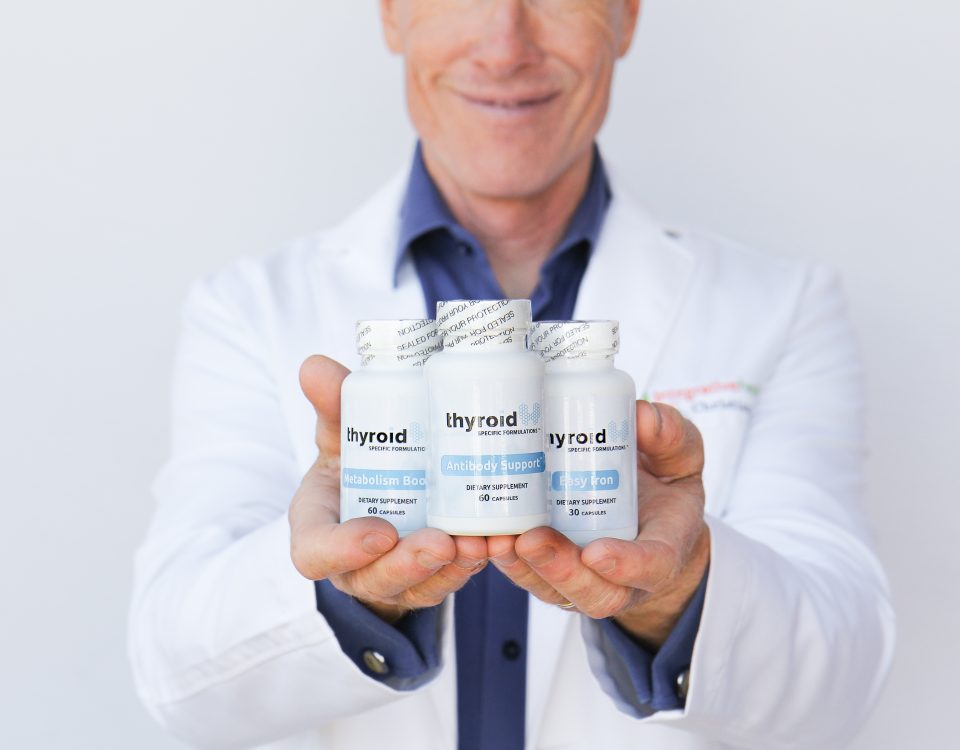Electrolytes: Do You Really Need Them?
Electrolytes are minerals such as sodium, potassium, calcium, and magnesium that carry an electric charge in the body. They help regulate fluid balance, nerve signaling, and muscle contraction. Because hydration is essential, many people assume that more electrolytes must be better. For most adults, that is not the case.
Many commercial electrolyte products are not thyroid-friendly. Some contain added iodine or use salts with hidden iodine sources, which can disrupt thyroid function. If you have thyroid disease, this is a significant concern and a good reason to be selective or to avoid these products entirely.
Sodium
There is a popular view online that everyone should consume more sodium. This is not supported by evidence. Most adults already get more than enough sodium from daily foods. Even with concerns about adrenal health, it is easy to meet normal sodium needs without supplementation. Gently salt food to taste and you will be fine. For everyday cooking, I recommend kosher salt, especially Diamond Crystal, because it is free of additives and measures consistently.
Potassium
Potassium is the electrolyte most people actually need more of. Many adults fall short, yet powders and drinks do not solve the problem because they cannot legally provide therapeutic amounts. Most people require roughly 3,000 to 6,000 milligrams per day, far more than a typical packet provides. Potassium is also safer and more effective when it comes from food.
Aim for about five cups of fruits and vegetables per day. Potassium-rich, lower-sugar options include:
- Leafy greens such as spinach, Swiss chard, and kale
- Beans and lentils
- Squash and zucchini
- Sweet potatoes
- Citrus fruits
- Melons
- Mushrooms
- Tomatoes
- Avocados
- Beets
Bananas are fine, but they are not exceptional compared to these other foods.
Calcium and Magnesium
These electrolytes matter for bone, muscle, and metabolic health, but typical electrolyte mixes contain amounts that are too small to be useful. Food should be the primary source, with targeted supplementation as needed. I include meaningful amounts of calcium and magnesium in my Daily Reset Bundle to support daily needs in a thyroid-safe way. General-purpose electrolyte packets are not an effective way to obtain useful doses of these minerals.
Performance, Cramps, and When Electrolytes Help
What about exercise and hot weather? In controlled studies, routine electrolyte supplementation does not improve endurance performance, speed recovery, or prevent cramping, even during events in hot conditions lasting four to six hours. Electrolytes also do not reduce nighttime leg cramps. Where they can help is in specific medical situations, such as high fevers, ongoing diarrhea, or when fluid intake is very limited. In those cases, oral rehydration solutions are appropriate.
Bottom Line
Outside of acute illness or extreme physical activity, electrolyte supplementation is not an important daily practice. Most people get more than enough sodium already. The smarter strategy is simple: salt food to taste, prioritize produce for potassium, and ensure steady intake of calcium and magnesium through diet and targeted supplements when appropriate. This supports hydration and overall health more reliably than flavored powders or packets, and it avoids thyroid-unfriendly additives such as iodine found in many commercial products.










